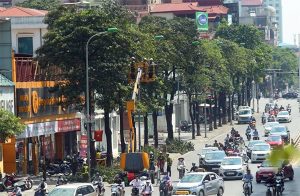An article by Mai Nguyen for Reuters has highlighted the Vietnamese Government’s intention to get rid of motorbikes in the city by 2030, and to increase greenery to tackle air pollution.

Mai States that “Pollution is a political risk for Communist-ruled Vietnam, which has witnessed environmental protests to save trees or demonstrate against a steel firm accused of polluting the sea.” She writes that “I usually joke with my friends, the more polluted the air is, the more prosperous I get,” said Cao Xuan Trung, a Hanoi dealer in air purifiers, who expects monthly revenue to double by 2020, from 3 billion dong ($131,199) now, a value that is already 75 times higher than when he started in 2013.

